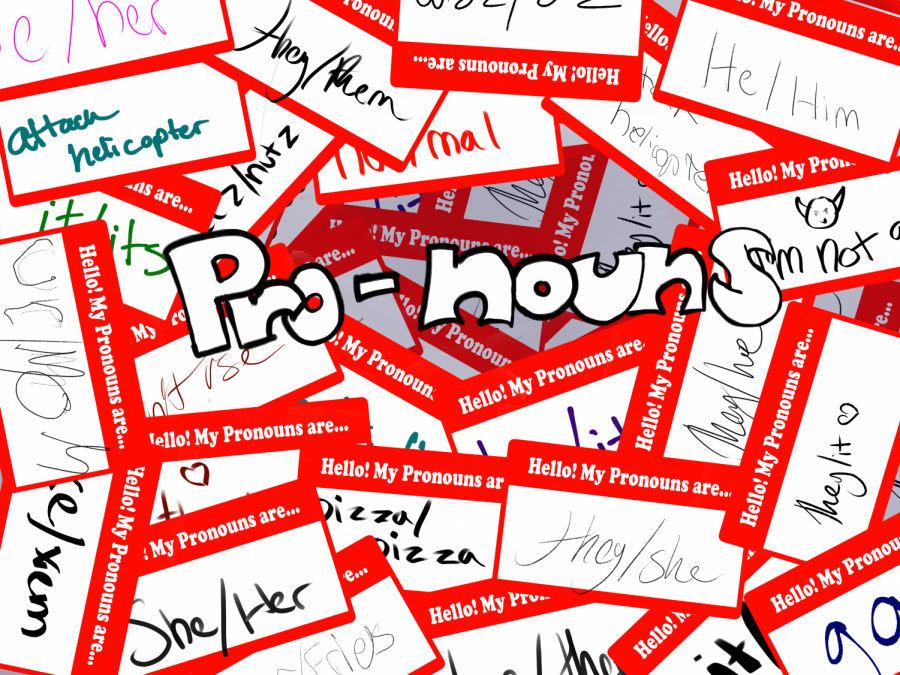Within the walls of WAHS, there are many opinions and beliefs that are debated and discussed by students, but one of these debates that’s been sticking out among the rest is the more recent discussion of the normalization of pronouns.
“I think it’s about a 75 percent to 25 percent split,” freshman Zhaine Raymundo said. “There are large groups for those who are against them, but there’s also an even larger group of those who have been educated on it and are trying to educate others about it as well.”
Pronoun normalization is the increasing use of introducing yourself with pronouns or asking others for their pronouns. Although pronouns within the English language have always been around, pronoun normalization suggests that people will get more used to asking others for pronouns, like introducing yourself with them when you meet new people. Pronoun normalization aims to avoid misgendering, and to make everyone more comfortable, feel safer, and make everyone happy.
Although many enjoy and support the idea of having pronoun normalization being a part of our everyday life, some others do not share that belief. These two different opinions tend to be one of the biggest separating factors of today’s high school experience, causing a large gap between social groups because of this one seemingly small factor.
Pronouns have most positively impacted the school by making many people feel more comfortable, happier, and most importantly of all, safer.
“I feel like it’s been more positive because it makes people feel more included and that they matter,” sophomore Avery Romey said.
With that positive support and love that many students get from the accepting communities they will feel more accepted and loved, while in other places, they may feel ashamed, scared, or even get bullied in ways that could threaten their own life.
“LGBTQ+ students who don’t have a supportive adult in their life can be up to 10 times more suicidal than your average teenager, and that was shocking to me,” Spanish teacher Ken Beiser said, “ So I think pronoun normalization can actually be a matter of life and death for some people.”
Above the student’s debates, the teachers are sitting above the conflicts, observing from a unique vantage point
the lives of students that they have within the school.
“I feel like more students are opposed to it, to be honest with you. And I don’t mean that in a bad way,” health teacher Molly Morse said, “And maybe saying they’re opposed isn’t the right thing. I think there’s a lack of understanding of everything.”
Students who feel negatively about the more common usage of pronouns may feel that it is another thing that is being pushed for them to have to get used to or may feel like it’s just another thing that they will need to keep track of within their lives.
While other teachers may see more negative feelings about this topic, choir and drama teacher, Cate Caffarella, said, “In my area, which is performing arts, there’s a lot of support. In fact, I see very willing next to no resistance at all, and kids in my area want to support other kids that want to be there for them.”
Depending on the groups of students, you can easily find crowds that are much more accepting and open about pronouns, but just as easily find crowds that are less open to these newer concepts. “Everybody I’ve seen that doesn’t agree with pronouns hardly talks about it,” senior Sachi Wrigley said.
High school will always be a mix of different views tossed into a blender, and you’ll often get mixed results, especially with something that has become as controversial as pronouns, but many students have agreed that it has overall done way more positivity and acceptance than harm within our school, and pronouns will just become more normalized and accepted from here.

